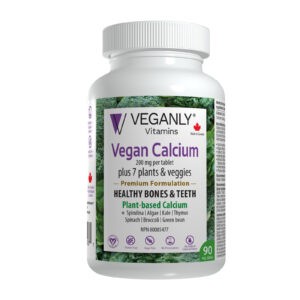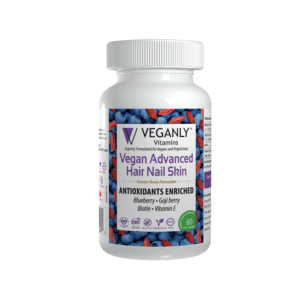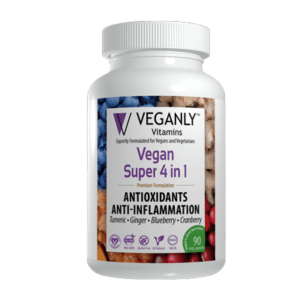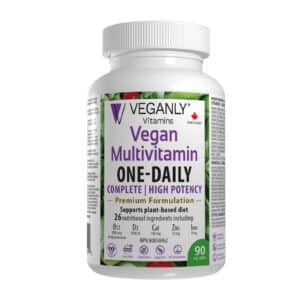The carbon footprint of food refers to the emission of greenhouse gases during the growing, farming, rearing, processing, storing, transporting, cooking and disposal of food we eat. Studies suggest that in the United States, about 48 tons of harmful greenhouse gases are produced by each household in a year. The highest carbon footprint is contributed by the food, housing and transport industries. Approximately 8 tons of harmful emissions are generated by food alone, and agriculture generates nearly half of the total man-made emissions globally.
By altering the foods eaten, it is possible to make a huge change in your carbon footprint. You can actually help reduce pollution and play a significant role in slowing the process of global warming, thereby preserving the environment.
Reduce your Carbon Footprint through Veganism
According to research, vegetarians have about half the food-related carbon footprint of meat eaters. And the carbon footprint is even lower for vegans, individuals who do not consume any animal products or by products.
Did you know that food production accounts for nearly 25% of total greenhouse gas emissions? These are responsible for the heating up of our planet. Scientists reveal that meat production undoubtedly has a higher carbon footprint compared to vegetable and fruit production. Lamb and beef have the highest carbon footprint. One of the reasons for this is because the production of meat takes up massive amounts of energy. Also, cows have a tendency to emit large amounts of methane gas (hence their impact on the environment is more than that of chickens or pigs).
A nutritional panel in the United States has advised people to consider reducing meat consumption for the sake of environmental safety. It said that a diet which is made up primarily of plant-based foods is not only good for health, but also has a much lower impact on the environment.
Livestock farming is responsible for generating about 20% to 50% of artificial greenhouse gas emissions. This means that the carbon footprint of a meat eater is the highest when it comes to the release of greenhouse gases, about 3.3 tons. On the other hand, vegans have the smallest carbon footprint, about 1.5 tons CO2 equivalent. Scientists suggest that it is possible to reduce your footprint by 25% by simply reducing your consumption of red meat such as lamb or beef.
The carbon footprint of vegetarians is nearly half of that of omnivores.
It Takes a Lot of Water
A lot of people are unaware, but it takes large amounts of water to grow the crops used for feeding animals and to clean the dirty factory farms. In addition, animals also need water for drinking purposes. A single dairy cow could drink approximately 50 gallons every day and nearly twice this amount during hot seasons! You need over 2,000 gallons of water to produce a single pound of beef. Alternatively, only 250 gallons or less water is required for producing the same amount of tofu. By adopting a vegan diet, you can save over 200,000 gallons water each year!
Adopt a Vegan or Vegetarian Diet for a Safer Environment
It is clear from the above discussion that the meat-production industry contributes significantly to the emission of greenhouse gases. These include methane, carbon dioxide (fossil fuels used for powering farm equipment for the storage, cooking and transportation of food) and nitrous oxide (as released by fertilized and tilled soils).
It is also important to remember that nitrous oxide and methane are even more dangerous in comparison to carbon dioxide. As such, it seems clear that human beings would be safer and healthier if they should consume a diet of grains, fruits and vegetables or a primarily plant-based diet.
Source:
http://www.greeneatz.com/foods-carbon-footprint.html
http://www.greeneatz.com/1/post/2013/04/earth-day-livestock-and-greenhouse-gas.html
http://coolclimate.berkeley.edu/footprint
THE CONTENT AVAILABLE VIA THE WEB SITE IS PROVIDED WITH THE UNDERSTANDING THAT NEITHER VEGANLY NOR ITS SUPPLIERS OR USERS ARE ENGAGED IN RENDERING MEDICAL, COUNSELING, LEGAL, OR OTHER PROFESSIONAL SERVICES OR ADVICE.
SUCH CONTENT IS INTENDED SOLELY AS A GENERAL EDUCATIONAL AID. IT IS NOT INTENDED AS MEDICAL OR HEALTHCARE ADVICE, OR TO BE USED FOR MEDICAL DIAGNOSIS OR TREATMENT, FOR ANY INDIVIDUAL PROBLEM. IT IS ALSO NOT INTENDED AS A SUBSTITUTE FOR PROFESSIONAL ADVICE AND SERVICES FROM A QUALIFIED HEALTHCARE PROVIDER FAMILIAR WITH YOUR UNIQUE FACTS. ALWAYS SEEK THE ADVICE OF YOUR PHYSICIAN OR OTHER QUALIFIED HEALTHCARE PROVIDER REGARDING ANY MEDICAL CONDITION AND BEFORE STARTING ANY NEW TREATMENT.






